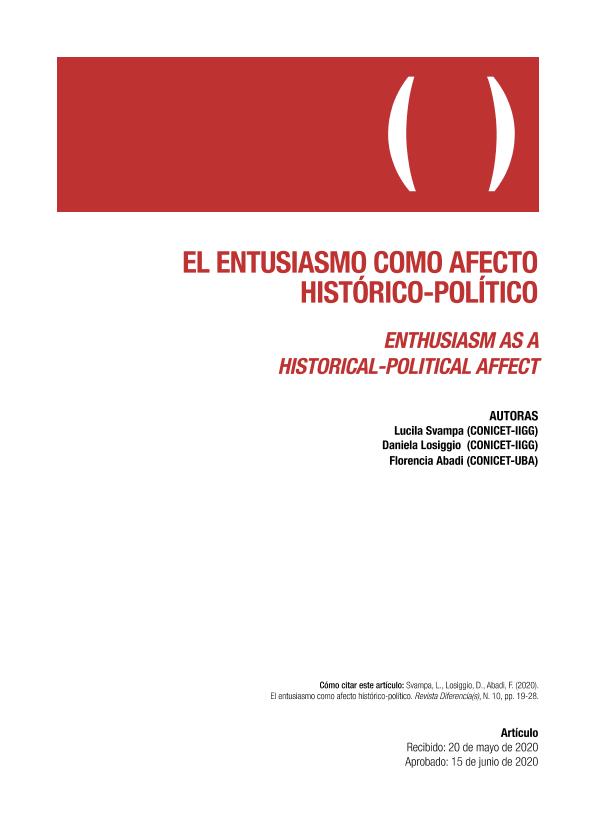Artículo
El giro afectivo ofrece un análisis de los cambios más significativos que ha transitado dicho terreno: por un lado, tanto la oposición entre razón y afectos, como la asociación de esta última a un ámbito privado y feminizado perdieron vigencia en los últimos años y por otro, hay una fuerte tendencia del conservadurismo contemporáneo a jerarquizar las emociones. En este trabajo nos preguntamos dónde ubicar en este contexto al entusiasmo, entendido como afecto histórico-político. Para ello, nos detenemos en la filosofía de la historia kantiana, que en el contexto de la Revolución Francesa, lo identifica como un signo político del progreso. El autor de las críticas señala que dado que la historia universal debe ser entendida como una idea, no podemos más que pensar para ella un hilo conductor. Allí entonces el entusiasmo compartido de los espectadores -que no participan activamente de los eventos revolucionarios- vendría a demarcar la posibilidad de un progreso, del que nunca podremos tener certeza absoluta. Por último, nos analizamos la productividad política de este afecto, en relación al deseo y a lo sublime, explorando su vínculo con la fraternidad y su distancia respecto de la ilusión. The affective turn offers an analysis of the most significant changes that this terrain has transited: on the one hand, both the opposition between reason and affections, and the association of the latter with a private and feminized environment have lost validity in recent years and on the other, there is a strong tendency of contemporary conservatism to hierarchize emotions. In this work we wonder where to place enthusiasm in this context, understood as an historical-political affection. To do this, we will dwell on the Kantian philosophy of history, which in the context of the French Revolution, identifies it as a political sign of progress. The author of the critics points out that since universal history must be understood as an idea, we can only think of it as a guiding thread. There then the shared enthusiasm of the spectators -who do not actively participate in the revolutionary events- would come to demarcate the possibility of progress, of which we can never have absolute certainty. Finally, we will stop at the political productivity of this affection, in relation to desire and the sublime, exploring its link with fraternity and its distance from illusion.
El entusiasmo como afecto histórico-político
Título:
Enthusiasm as a historical-political affect
Fecha de publicación:
03/2020
Editorial:
Universidad de Buenos Aires. Facultad de Ciencias Sociales. Instituto de Investigaciones Gino Germani
Revista:
Diferencias
ISSN:
2469-1100
Idioma:
Español
Tipo de recurso:
Artículo publicado
Clasificación temática:
Resumen
Palabras clave:
AFECTOS
,
ENTUSIASMO
,
HISTORIA
,
KANT
Archivos asociados
Licencia
Identificadores
Colecciones
Articulos(SEDE CENTRAL)
Articulos de SEDE CENTRAL
Articulos de SEDE CENTRAL
Citación
Svampa, María Lucila; Losiggio, Daniela; Abadi, Florencia; El entusiasmo como afecto histórico-político; Universidad de Buenos Aires. Facultad de Ciencias Sociales. Instituto de Investigaciones Gino Germani; Diferencias; 1; 10; 3-2020; 19-28
Compartir




